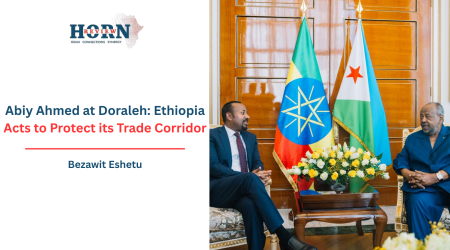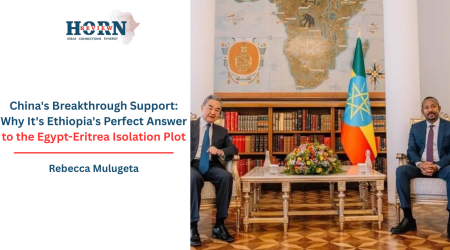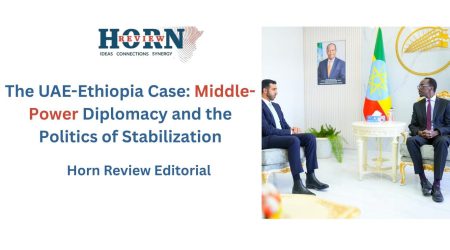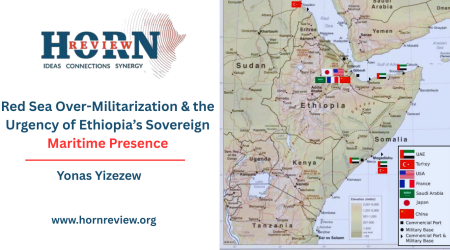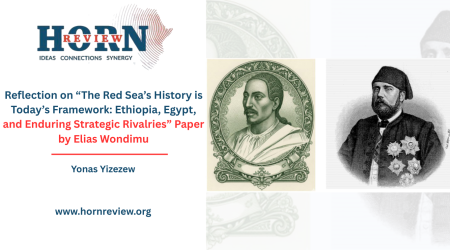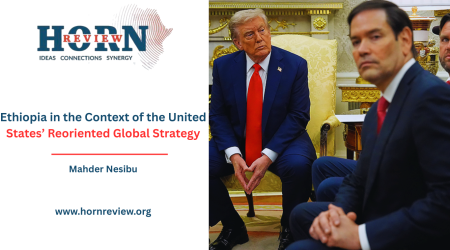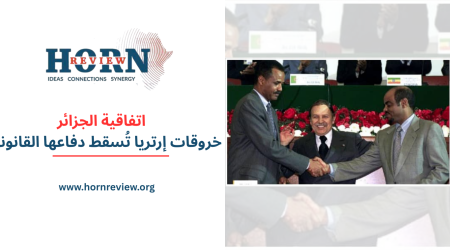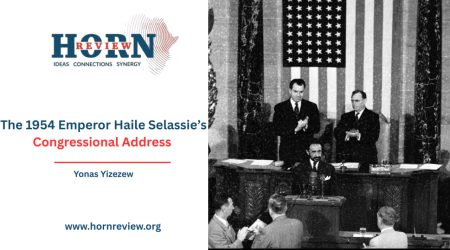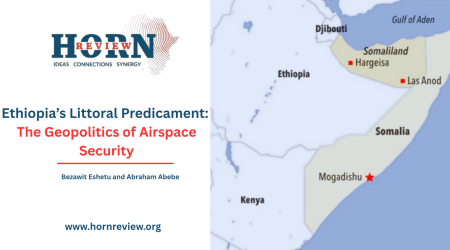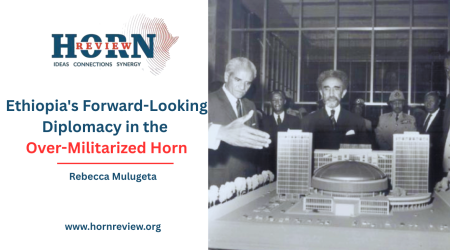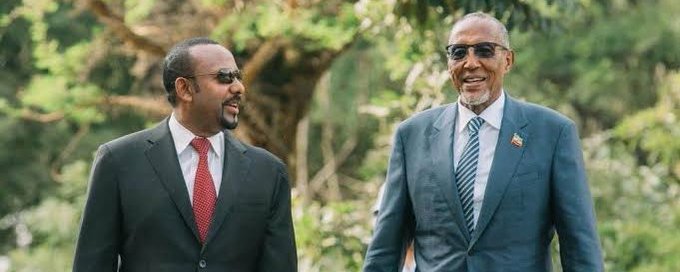
18
Jun
Beyond Hesitation: Why Ethiopia Must Recognize Somaliland Now
By Nolawi M. Engdayehu
In his two previous essays, Nolawi explored Ethiopia’s evolving Red Sea strategy and its shifting diplomatic posture in the Horn of Africa. He argued that maritime access is a national imperative and that engaging both Mogadishu and Hargeisa in parallel is key to long term regional stability in the region. As this series concludes, the policy recommendation becomes clear: Ethiopia must recognize Somaliland; formally and without delay.
A Strategic Opportunity That Won’t Wait
For over three decades, Hargeisa has functioned as a de facto state maintaining internal stability, cultivating institutions, holding peaceful transfers of power, and establishing working relationships with international partners. It has done all this without formal recognition, yet with a consistency and competence that exceed many sovereign states in the region. As global powers continue to hedge, Ethiopia remains uniquely positioned to convert geographic proximity into regional leadership.
Few countries face a foreign policy decision as consequential and none stand to benefit more, both symbolically and substantively, from moving first. As Somaliland’s largest neighbor and a nation historically involved in its peace process, Ethiopia has significant leverage to shape the contours of recognition. The symbolism of being the first state to recognize Hargeisa, a stable entity that defied the odds by maintaining peace and democracy would boost Ethiopia’s image as a regional trailblazer. Substantively, Ethiopia gains privileged access to commercial and maritime infrastructure, a stake in Hargeisa’s future security and trade architecture, and long-term political goodwill that no latecomer could replicate.
The cost of hesitation, by contrast, grows heavier with time. Timely recognition would offer Ethiopia not only a stronger foothold in regional geopolitics, but also tangible economic and political dividends. This is not an indefinite opportunity it is a moment of critical value, shaped by urgency. Delays would erode its impact. In international affairs, as in markets, the window of action often defines leverage; those who move late may find the field already shaped by others, their influence diminished.
Meanwhile, Somalia’s internal divisions and erratic posture toward Ethiopia have strained bilateral channels and limited opportunities for constructive engagement. Mogadishu’s persistent approach to dealing with Addis Ababa has neither advanced regional cooperation nor served Ethiopian interests. It is time to realign foreign policy with the facts on the ground.
Full Recognition Repositions Ethiopia for the Future
A formal recognition of Somaliland is not a repudiation of Somalia’s integrity, but an acknowledgment of political reality one that echoes global precedents where self-determination has helped stabilize, rather than fracture, regional peace. Ethiopia must continue supporting Somalia’s development while accepting that Somaliland’s statehood trajectory is neither reversible nor deniable. International experience shows that timely recognition when grounded in demonstrated self governance, internal legitimacy, and institutional continuity can reduce uncertainty and lay the foundation for constructive engagement. Whether in the post-Soviet space or in Africa’s own history in South Sudan, early diplomatic clarity has often preempted wider volatility. Ethiopia now has the chance to replace ambiguity with a coherent framework by anchoring Hargeisa within a predictable regional order and transforming a contested transition into a model for principled cooperation.
Equally important is dismantling the harmful framing that casts Somaliland’s quest for recognition as a secessionist provocation. It is a lawful and sustained pursuit of legitimacy by a population that has upheld peace, governance, and democratic norms in a region where all three remain rare.
Dual track diplomacy has already become standard for many global powers. The UAE, U.K., and U.S. maintain functional relations with both Hargeisa and Mogadishu. Ethiopia’s value lies in formalizing what is already a defacto partnership and in doing so, shaping a future regional order. To be the first to recognize Somaliland is to anchor Ethiopia in the foundation of a new state as co-architect, neighbor, and partner.
Being the first to recognize Hargeisa would permanently etch Ethiopia into the story of Somaliland’s emergence sealing Ethiopia’s place as the country that gave Somalilanders what no one else would: international legitimacy.
If Ethiopia delays, that opportunity, and its associated geopolitical benefits, will vanish. Should the United States, Gulf States, or others act first, Ethiopia’s recognition will no longer carry exceptional weight. Addis Ababa will simply become another latecomer in an increasingly crowded diplomatic field.
Why Recognition Should Not Wait
Recognition could directly serve three core national interests:
• Security and Counterterrorism: Somaliland offers relative stability in a volatile region. Recognition enables structured cooperation against extremist threats and establishes a reliable partner in regional security.
• Maritime Access: Ethiopia’s economic and security resilience depends on diversified access to the sea. A formal agreement with a recognized Somaliland would enable secure, long-term infrastructure investment free of political ambiguity.
• Institutional Coherence: Recognition would bring coherence to a foreign policy that is more reactive and constrained by outdated assumptions. It would also create legal certainty, especially for investors and policymakers, and reduce internal contradictions in Ethiopia’s Horn policy.
Every day of hesitation chips away at these advantages.
The Cost of Delay
Hargeisa’s international relationships are growing deeper and more consequential. The UAE has established a lasting presence through infrastructure, ports, and defense ties. In Washington and London, momentum is quietly building with lawmakers pushing for formal recognition and expanding security cooperation. If another power, whether regional or global, acts first, Ethiopia risks being recast from pioneer to bystander in a key arena it cannot afford to cede.
Recognition after the fact carries neither prestige nor strategic leverage; it is a reactive move with diminished returns. In the case of South Sudan, early engagement by key regional allies such as Uganda translated into lasting political and security influence. Other states in the region, slower to acknowledge the facts on the ground, saw their influence diluted as critical decisions and concessions were shaped without them. The lesson is clear: seizing the moment is not merely symbolic it determines who shapes outcomes and who sits at the table when the rules are written. Ethiopia must act now to define the terms of engagement with Hargeisa; instead of waiting until others have set the agenda, leaving it to adjust to a regional order built without its lead.
A Practical Path to Recognition
Recognition should be bold – but also disciplined. A responsible approach should rest on three pillars:
1. Dual Engagement: Deepen ties with Mogadishu, reinforcing Ethiopia’s commitment to Somalia’s recovery, even while formalizing relations with Hargeisa.
2. Structured Frameworks: Establish bilateral mechanisms with Somaliland to govern trade, ports, borders, and investment reducing friction and ensuring legal clarity.
3. Multilateral Legitimacy: Engage IGAD, the African Union, and key partners to manage regional sensitivities and demonstrate that Ethiopia’s approach is principled.
From Hesitation to Leadership
Ethiopia’s foreign policy has often married ambition with hesitation, especially on difficult security and geopolitical dilemmas. But the Horn of Africa is rapidly dividing into spheres of influence, militarized outposts, and transactional alliances. Strategic clarity is no longer optional.
Recognizing Hargeisa aligns with Ethiopia’s regional priorities and signals a shift toward a more pragmatic regional order. It offers a chance to move past outdated formulas and toward arrangements shaped by local legitimacy and stability. In doing so, Ethiopia asserts itself as a regional actor willing to lead, not follow, on hard but necessary choices. Yes, backlash is likely, especially from Mogadishu and its domestic allies. But fragility in Somalia cannot be allowed to paralyze the region’s future. Ethiopia must have the capacity to absorb that pressure and to reap the dividends of foresight.
Translating Vision into Strategy
Recognition gives operational force to Ethiopia’s “Horn First” doctrine; transforming vision into concrete policy, infrastructure strategy, and long-term partnerships. In that context, Ethiopia must translate intent into action, starting with operational plans for port agreements, logistical infrastructure at Berbera and a restructured engagement that leaves behind dependence on adversarial partners.
A principled recognition policy would also enhance Ethiopia’s credibility as an indispensable regional convener on issues of statehood and integration. It would project the kind of quiet strength and clarity that defines long-term leadership in the Horn and the Red Sea.
A Legacy Too Valuable to Miss
Somalilanders have sought recognition for 30 years, while Ethiopia has long desired a stable partner and a secure maritime outlet. These interdependent interests now align at a pivotal historical moment. Hesitation by Addis Ababa risks squandering a valuable legacy of partnership and missing the chance to usher in greater stability and security for the largest country in the Horn of Africa.
Handled with clarity and coordination, a recognition process replaces three decades of geopolitical ambiguity with a framework of mutual respect, legal certainty, and institutional cooperation, compelling the region to acknowledge new realities and engage in constructive dialogue.
Timing in foreign engagement is crucial and further delay could mean forfeiture. Ethiopia must recognize Somaliland not cautiously, but confidently. Not later, but now.
Nolawi M. Engdayehu is a senior policy analyst focusing on the Horn of Africa. He has worked with international organizations, governments, NGOs, think tanks, and diplomatic missions on regional peace and security, advocacy, governance, disaster risk management, and related cross-cutting policy areas.

